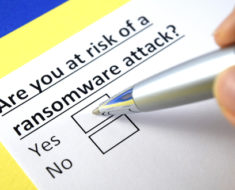
Safeguarding personal data online is paramount to ensure privacy and prevent unauthorized access. The prevalence of cybersecurity threats underscores the importance of taking proactive measures to protect personal information. Let’s explore effective ways to fortify your online presence and understand the significance of cybersecurity.
4 Ways to Protect Your Privacy Online:
1. Use Strong, Unique Passwords:
Creating complex passwords with a mix of letters, numbers, and special characters is crucial. Avoid using easily guessable information and update your passwords regularly. Consider using a reputable password manager to securely store and manage your passwords.
2. Enable Two-Factor Authentication (2FA):
Implement 2FA whenever possible. This adds an extra layer of security by requiring a second form of verification, such as a text message or authentication app, in addition to your password.
3. Regularly Update Software and Devices:
Keep your operating system, applications, and antivirus software up to date with the latest security patches. Developers frequently release updates to fix vulnerabilities that could be exploited by cybercriminals.
4. Be Cautious with Personal Information Sharing:
Exercise caution when sharing personal information online, especially on social media. Limit the amount of personal data you disclose and adjust privacy settings to control who can access your information.
3 Ways to Protect Yourself Online:
1. Educate Yourself on Cyber Threats:
Stay informed about various cybersecurity threats, such as phishing, malware, and identity theft. Understanding these threats empowers you to recognize suspicious activities and take appropriate action.
2. Be Skeptical of Email Links and Attachments:
Avoid clicking on links or downloading attachments from unknown or suspicious emails. Verify the sender’s authenticity before taking any action, as phishing attempts often disguise themselves as legitimate communications.
3. Regularly Monitor Financial Transactions:
Keep a close eye on your bank and credit card statements. Report any unauthorized transactions immediately to your financial institution. Monitoring your accounts helps detect potential breaches or identity theft early on.
How Can I Protect My Personal Information Offline?
To protect your personal information offline, consider the following:
– Secure Physical Documents: Store sensitive documents in a safe place and consider using a lockbox or a secure cabinet to prevent unauthorized access.
– Shred Unwanted Documents: Before discarding documents that contain personal information, shred them to prevent identity theft.
– Limit Sharing of Personal Details: Avoid providing unnecessary personal information to organizations, and be cautious when sharing details over the phone or in person.
How Do You Keep Safe and Secure Online?
To stay safe and secure online:
– Regularly Back Up Data: Ensure important data is regularly backed up to secure and encrypted storage, both locally and in the cloud.
– Educate and Train Family Members: Teach your family about online safety, including recognizing threats and safe browsing habits.
– Stay Informed and Updated: Keep yourself informed about the latest cybersecurity threats and best practices to adapt and strengthen your defenses.
Prioritizing online privacy and security is essential in today’s digital age. By following these protective measures and being vigilant, you can fortify your personal data against cyber threats and contribute to a safer digital environment.
Dil Bole Oberoi





